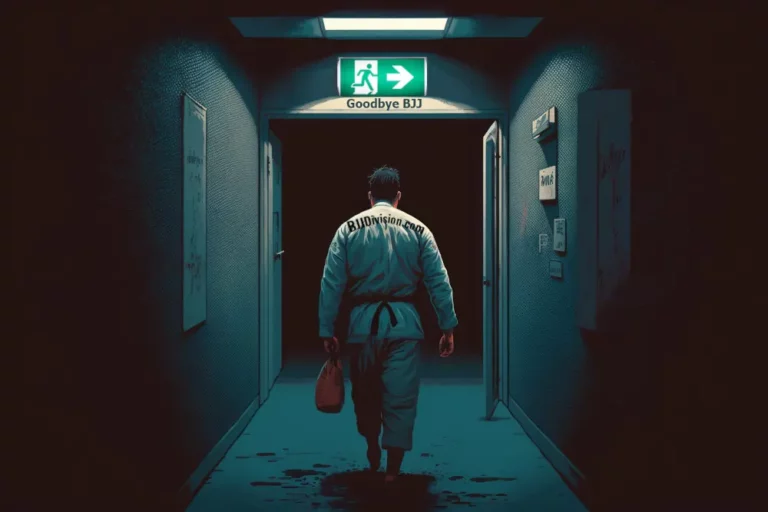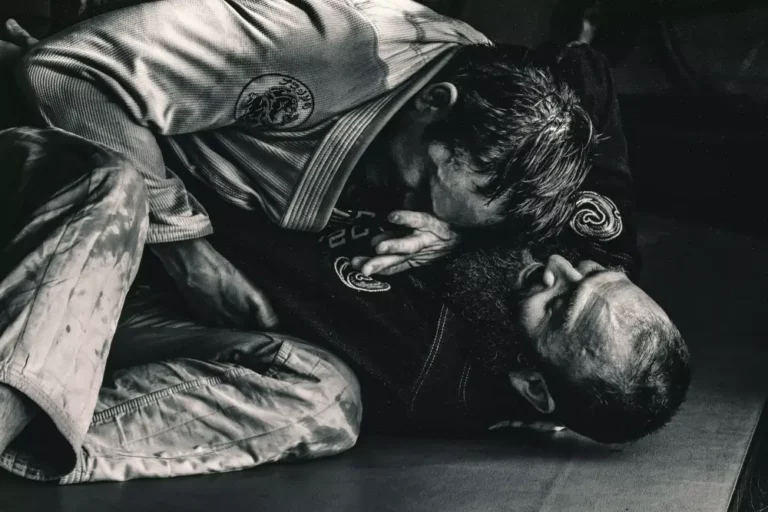Best BJJ Diet: 2 Rules to Lose Weight and Dominate Jiu Jitsu
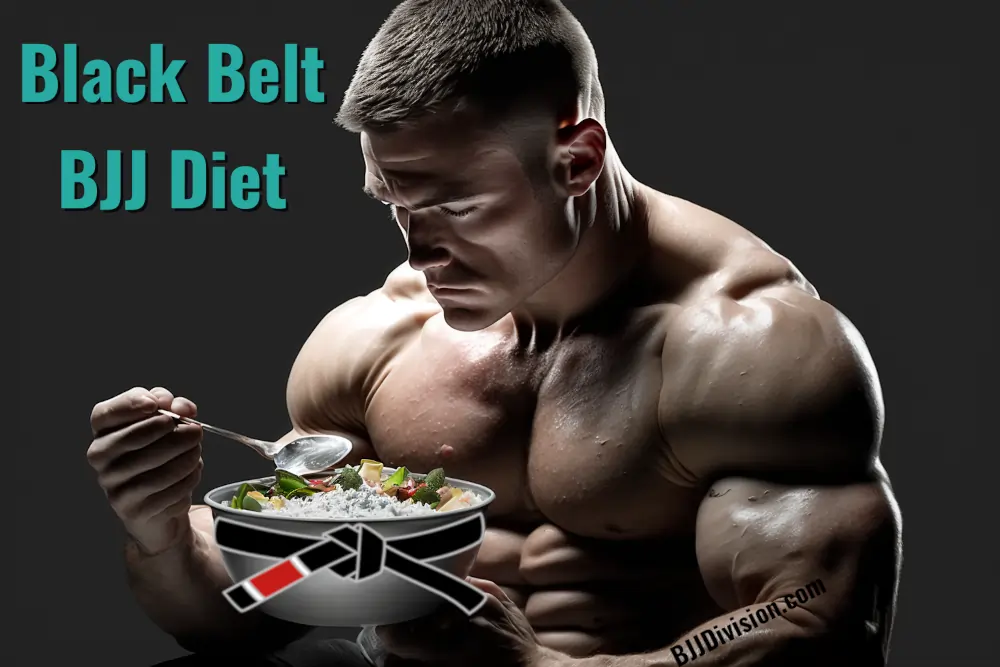
To dominate and make progress in BJJ, it’s essential to fuel your body with the right amount of calories and the right nutrients.
What is the best BJJ diet to lose weight?
What diet guarantees optimal health and performance in Jiu Jitsu?
Check out our FREE CALORY AND MACRONUTRIENT CALCULATOR to know exactly what to eat.
In this blog post, we will learn about the most important diet concepts and construct the best BJJ diet. This way you will know exactly what to eat and will be able to create your personal BJJ meal plan.
Disclaimer: Make sure to contact a medical professional before making drastic changes to your diet. This article does not replace professional medical advice in any form.
The Perfect Jiu Jitsu Diet
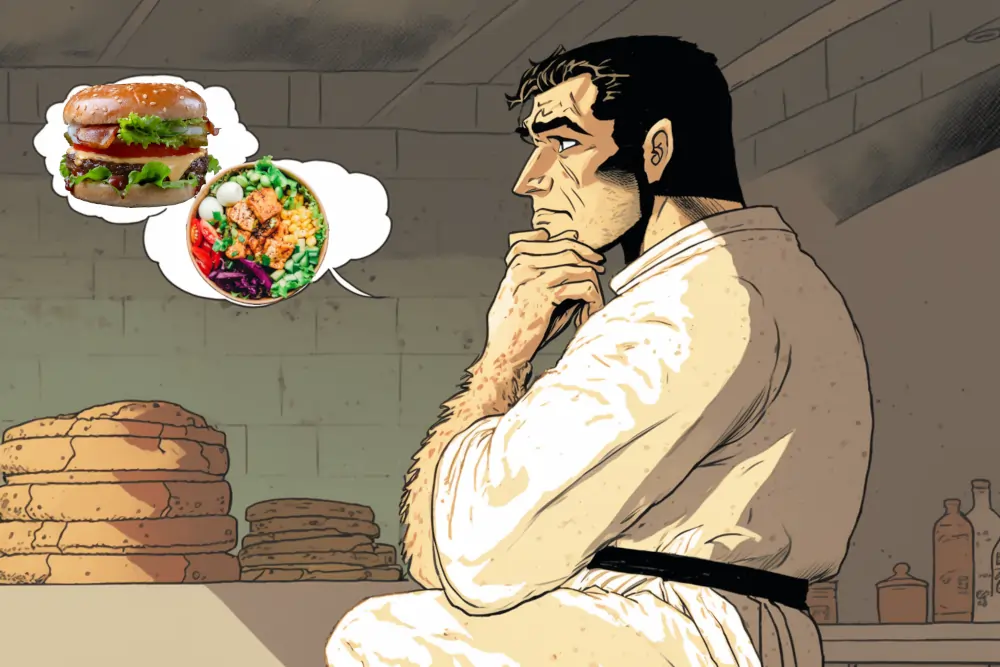
Unfortunately, there is not one perfect diet for BJJ or being healthy in general. At least science hasn’t found one yet.
Some people are convinced that a vegan diet is the healthiest diet, while others follow a carnivore diet that only consists of meat. And worst of all, there is scientific evidence to support both sides!
Therefore, we are not going to argue about a specific best BJJ diet but stick to the general concepts that make a diet great, help you lose weight, and enable you to perform.
There are a few reason to optimize you diet when training Brazilian Jiu Jitsu:
1. Weight Loss
Maybe you are just starting, or you need to cut weight for an upcoming BJJ competition. Whatever your motivation to lose weight is, it is always reasonable to keep a healthy body fat percentage. It will increase performance, recovery, sleep quality, and overall quality of life.
Nevertheless, both extremes of body composition can be decremental in the long run. Being overweight is obviously unhealthy, but sustaining an extremely low body fat percentage also has its drawbacks.
2. Muscle Gain
It is not important to have large muscles to dominate or make progress in Brazilian Jiu Jitsu.
However, gaining muscle can be beneficial for most Jiu-Jitsu techniques, and a strong muscular body has a lower risk of injury.
On top of that, if you are training hard, you also want to look like you work hard. There’s nothing wrong with wanting to look good and aim for a body transformation.
3. Performance
You can only perform at your best with proper nutrition.
The right BJJ diet will aid recovery, help build muscle and strength, minimize risk of injury, and enhance you mental ability.
Best BJJ Diet to Lose Weight

There is only one thing you need to lose weight: a caloric deficit. This means you must consume fewer calories than you burn each day.
However, that doesn’t mean you should eat fries all day as long as you stay in a caloric deficit. Consuming the right amount of calories might ensure that you lose weight over time, but it does not guarantee optimal health.
Most people overcomplicate things, which is why they don’t reach their weight loss goals. Follow these two dieting concepts instead:
1. Make it Simple
Creating simple rules that you can stick to is the most important part for any diet to work!
For example, you could skip breakfast and only eat from 4 p.m. to 12 p.m. at night. This way of eating is called intermittent fasting.
You could also eliminate all sugary drinks without ever cheating.
Simple rules like don’t give you leeway to cheat yourself and slip from the diet, which is the biggest reason diets don’t work!
Come up with whatever rules work for you, and be strict with yourself. You will lose weight in no time.
2. Focus on Nutrient-Dense, Low-Calorie Foods
Think about it, you can either eat one big burger that already amounts to 1,000 calories but leaves you hungry for more, or you could eat a whole bowl of salad and be full before the bowl is empty.
Obviously, a burger tastes great from time to time, but you must make sure to adjust the rest of your diet accordingly to fit it in for the day.
Here are some foods your BJJ diet should include:
And some foods your Jiu Jitsu diet shouldn’t include:
Keep in mind, if your primary goal is to lose weight, you can eat whatever you, as long as you stay in a caloric deficit. However, keep an eye on sufficient micronutrient supply.
2 BJJ Diets that Work
The following two popular diet models are simple but effective:
1. Intermittent Fasting
As mentioned above, Intermittent Fasting is a diet that divides the day into intervals of eating and intervals of fasting. There are different ways to organize these intervals. The most popular intermittent fasting model is the 16:8 Model:
16:8 means that each day consists of 16 hours of fasting followed by 8 hours of eating. For example, you could eat from 4 p.m. to 12 p.m. and fast for the remaining hours of the day.
This way of dieting makes reducing calories very easy. The only way to mess it up is to heavily overeat within the eating interval and therefore make up for the fasting.
2. If It Fits Your Macros (IIFYM)
In this diet concept you can eat WHATEVER YOU WANT as long as it fits your macros (macronutrients).
The three macronutrients are proteins, fats, and carbohydrates.
You can calculate your optimal macronutrient intake as follows:
- Find out your maintenance caloric intake.
- Protein: (body weight in pounds) x 0.7
- Fat: (body weight in pounds) x 0.45
- Fill the rest of the calories with carbs (carbohydrates).
If this sounds complicated, you can simply use our free calory and macronutrient calculator:
BJJ Calory and Macro Calculator
You can read about optimal protein intake for athletes in the following studies on “Dietary protein for athletes: From requirements to optimum adaptation” and “Current knowledge about sports nutrition”.
BJJ Diet for Competition Days
There are two ways to enter a Jiu Jitsu competition. You are either on weight already, or you are still cutting weight to fit in your weight division.
If you expect no trouble on the scale, just make sure not to follow a “special BJJ competition diet”. Your body is used to your regular diet, whatever it is. If you change your diet all of a sudden, you won’t be able to perform optimally when it’s time to compete.
If you expect the weigh-ins to be a close call, make sure to keep your belly empty and fit in a small refueling meal between the weigh-ins and your first fight. Keep the meal light, as your body shouldn’t have to work hard to digest it. If you puke on the mats, you will be disqualified.
Deciding if and when to eat a meal on the day of the competition depends on the schedule of the day. You should eat just enough to keep your body and mind ready to fight.
Example BJJ Meal Plan
There is no perfect BJJ meal plan, but if you follow the rules and concepts laid out above, you will be on the right track.
You have to decide what meal frequency fits your preferences and circumstances best. Listen to your body. Personally, I like to eat fewer meals and fast for longer periods, but you might be different.
Here’s an example of a healthy and well-rounded BJJ diet meal plan:
Breakfast: Oatmeal with blueberries, cinnamon, almond milk and banana. You can also add some scrambled eggs for additional protein intake.
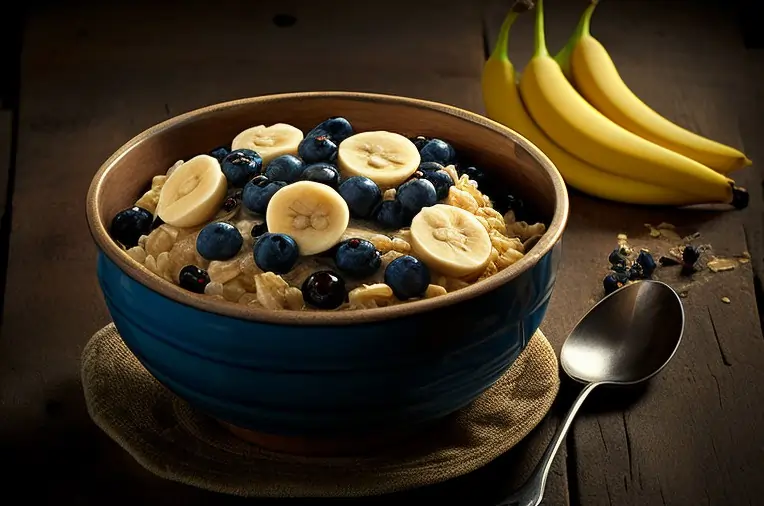
Lunch: Avocado, beans, and sweet potatoes.
Dinner: Grilled salmon, brown rice, roasted vegetables, and a side salad.
Snack: Fruits, nuts, and a protein shake.
For most people, it won’t be possible to have perfect meals every day. On those days, simply resort to the “If it fits your macros” approach we explained above.
Mikey Musumeci’s BJJ Pizza Diet

Let’s consider Mikey Musumeci, Brazilian Jiu Jitsu Black Belt, and world champion.
During the pandemic, Mikey, who is of Italian ancestry, started to only eat pizza and pasta. The simple reason for this kind of diet is: Mikey Musumeci always loved Italian foods like pizza and pasta.
Although scientific research doesn’t support his BJJ diet, and we all agree that it can’t be the best BJJ diet, it seems to work for him. He continues to be healthy, perform, and in big titles in Jiu Jitsu.
Check out Mikey’s chef skills:
Conclusion
Having a good understanding of basic dietary concepts can improve to performance on the mats a bring you one step close to the physique of your dreams.
However, there is not one best BJJ diet. Your best bet is to follow a simple diet like intermittent fasting or tracking your calories and macronutrients.
Choose one concept, don’t overthink it, and stay consistent. You can do it.

